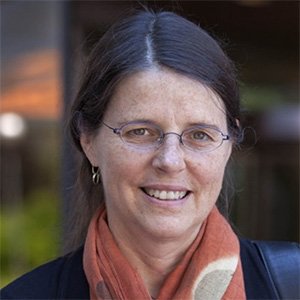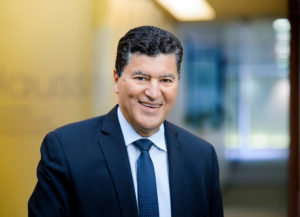
CEDSS: “Strategies to Identify Aggressive Breast Cancer Biology in Black and Latina Women”
Victoria Seewaldt, MD
Ruth Ziegler Professor and Chair, Department of Population Sciences
Associate Director for Population Sciences Research, Comprehensive Cancer Center
City of Hope
Beckman Center, Munzer Auditorium (B060)
11:00am – 12:00pm Seminar & Discussion
12:00pm – 12:15pm Reception & Light Refreshments
RSVP here: https://www.onlineregistrationcenter.com/VictoriaSeewaldt
ABSTRACT
Over 90% of breast cancer is cured; yet there remain highly aggressive breast cancers that develop rapidly and are extremely difficult to treat, much less prevent. Examples are triple-negative breast cancer in Black/African American women and luminal B breast cancers in Black/African Americans and Latinas. Breast cancers that rapidly develop between breast imaging are called “interval cancers”. Here we aim to investigate biologically aggressive precancerous breast lesions and their matched invasive breast cancers in women of diverse race and ethnicity. Our team has the unique ability to perform single cell in situ transcriptional profiling in combination with dynamic and spatial genomics/proteomics; this allows us to identify multi-dimensional spatial and temporal relationships that drive the transition from biologically aggressive pre-cancer to interval breast cancer.
ABOUT
Victoria Seewaldt, M.D., is an accomplished clinician and researcher who’s devoted to improving the lives of her patients and the community at large. She has led community outreach education efforts on cancer prevention through personal wellbeing and directed research aimed at finding biomarkers that can be used for early cancer detection, particularly triple-negative breast cancers that are especially resistant to treatment.
At City of Hope, Dr. Seewaldt will direct efforts to provide breast cancer education, free breast cancer screening and treatment, mentorship of young minority scholars, and a forum for community partnered trials. Clinically, Dr. Seewaldt aims to empower women at high breast cancer risk to be full partners in developing wellness strategies to promote personal health.
Dr. Seewaldt received her medical degree from the University of California, Davis, and completed her residency and clinical fellowship at the University of Washington in Seattle. She then pursued a medical oncology fellowship with the Fred Hutchinson Cancer Research Center and then became an assistant professor at Ohio State University. Afterwards, she transferred to Duke University, where she held various clinical, academic and leadership roles in its School of Medicine and Comprehensive Cancer Center — most recently as a professor, co-leader of the breast and ovarian cancer program and head of the cancer breast prevention program — before joining City of Hope.

PHIND Seminar Series: “Prediction of Future Lymphoma Development Based on DNA Methylation Profiles from Peripheral Blood”
Almudena Espin Perez, PhD
Postdoctoral Research Fellow
Biomedical Informatics
Stanford University
Beckman Center, Munzer Auditorium (B060)
12:00pm – 1:00pm Seminar & Discussion
1:00pm – 1:15pm Reception & Light Refreshments
RSVP here: https://www.onlineregistrationcenter.com/APerez
ABSTRACT
Subjects with Non-Hodgkin Lymphoma (NHL) have abnormal lymphocytes that multiply and accumulate to form tumors in the lymph nodes and other organs. Currently, there are no predictive models with high performance that can predict the risk of developing NHL.
We present a computational framework that accurately predicts future (up to 16 years) NHL from a signature based on DNA methylation profiles of peripheral blood samples. We studied differences in specific DNA methylation levels from blood samples between future NHL group and the control group (470 samples) from two prospective cohorts. We developed a predictive model using advanced artificial intelligence methods for NHL diagnosis based on a set of key CpG sites. The validation tests showed that our signature 1) predicts mainly “control” in an independent population of 656 healthy subjects, 2) predicts “future case” with extremely accurate performance in tissue samples from four independent NHL cohorts (662, 29, 31 and 29 subjects), with one of the cohorts (662 subjects) corresponding to children with B-cell lymphoma, 3) predicts mostly healthy in a cohort of children with 74 children in remission, 4) works for both HIV positive subjects and HIV negative subjects, 5) yields almost perfect predictions regardless of the NHL subtype, and 6) is 84% accurate at predicting T-cell lymphoma in children, despite its derivation in B-cell lymphoma in adults.
ABOUT
Almudena Espin Perez’s interests include developing algorithms and novel computational methods for early cancer detection. High-throughput technologies in the field of molecular biology are generating huge amounts of biological data and transforming the scientific landscape. A major focus of her research is on building computational methods to 1) study genomics and epigenetic data 2) integrate genomics and imaging data at single-cell level resolution and 3) leverage existing large-scale transcriptomic datasets to address relevant biological questions by developing computational deconvolution tools to infer the abundance of different cell types from mixed cell populations. Dr. Perez aims to improve the understanding of the molecular mechanisms behind cancer development, which could potentially lead to biomarker discovery and improve early detection, treatment strategies and decision-making.
Hosted by: Sanjiv Sam Gambhir, M.D., Ph.D.
Sponsored by the PHIND Center and the Department of Radiology

Please note this seminar is now cancelled and will be rescheduled for a future date. Please contact Ashley Williams (ashleylw@stanford.edu) with any questions or concerns. Thank you for your understanding!
PHIND Seminar Series: “A Stroke Monitoring and Alert System for a Future Without Late Presentation”
Orestis Vardoulis, Ph.D.
Postdoctoral Research Fellow
Pediatric Surgery
Stanford University

Please note this seminar is now cancelled and will be rescheduled for a future date. Please contact Ashley Williams (ashleylw@stanford.edu) with any questions or concerns. Thank you for your understanding!
CEDSS: “The First Cell and the Human Cost of going after Cancer’s last”
Chan Soon-Shiong Professor of Medicine
Director, Myelodysplastic Syndrome Center
Columbia University Medical Center

PHIND Seminar Series: The Behaviorome in Precision Medicine
Kevin Schulman, M.D.
Professor of Medicine (Hospital Medicine) and, by courtesy, of Economics a the Graduate School of Business
Stanford University
12:00pm – 1:00pm Seminar & Discussion
RSVP here: https://www.onlineregistrationcenter.com/KevinSchulman
Meeting URL: https://stanford.zoom.us/j/514973612
Dial: +1 650 724 9799 (US, Canada, Caribbean Toll) or +1 833 302 1536 (US, Canada, Caribbean Toll Free)
Meeting ID: 514 973 612
ABSTRACT
The revolution in biomedical technology that is allowing us to develop the concept of precision medicine has a fatal flaw. Medical science has focused on risk prediction in the hopes of using risk information to influence health behaviors. However, there is little evidence to support the notion that risk information alone influences individual behavior at scale. Concurrent with the development of the field of precision medicine is an even larger revolution in understanding of the behavior of populations using digital technology. Marketing, the science underlying these advances, offers tools and insights to help guide our understanding of how to translate risk information into behavior change. To date, marketing has been used for mass-customization of products and services outside of clinical medicine. For example, each of us has the opportunity to enjoy streaming video programs that suit our tastes and desires. This delightful consumer experience developed in an iterative fashion based on tight linkages between prediction and behavior. In this case, data are used to develop population segments that are likely to respond similarly to movie suggestions. In this talk, we’ll discuss how a better understanding of behavior in the health care realm, the Behaviorome, will help solve the last mile problem of Precision Medicine.
ABOUT
Dr. Schulman serves as Professor of Medicine, Associate Chair of Business Development and Strategy in the Department of Medicine, Director of Industry Partnerships and Education for the Clinical Excellence Research Center (CERC) at the Stanford University School of Medicine, and, by courtesy, Professor of Economics at Stanford’s Graduate School of Business.
Dr. Schulman’s research interests include organizational innovation in health care, health care policy and health economics. With over 300 original articles, 90 review articles/commentaries, and 40 case studies/book chapters, Kevin Schulman has had a broad impact on health policy (h-index = 61). His peer-reviewed articles have appeared in the New England Journal of Medicine, JAMA, and Annals of Internal Medicine. He is a member of the editorial/advisory boards of the American Heart Journal, Health Policy, Management and Innovation (www.HMPI.Org), and Senior Associate Editor of Health Services Research.
At Duke’s Fuqua School of Business, Dr. Schulman oversaw the growth of the health sector management program, graduating almost 1500 students. He is the Founding Director of the unique Master of Management in Clinical Informatics program (MMCi), originally offered through the Fuqua School of Business and now housed in the Duke University School of Medicine. He has served as a Visiting Professor in General Management at Harvard Business School from 2013-2016, and a visiting scholar from 2016-2018. At Stanford, he teaches a course on Health IT and Strategy at the GSB.
He is the Founding President of the Business School Alliance for Health Management (http://www.BAHM-Alliance.Org), which is a consortium of the leading business schools offering health management programs.
He is an elected member of ASCI and AAP.
Hosted by: Sanjiv Sam Gambhir, M.D., Ph.D.
Sponsored by the PHIND Center and the Department of Radiology

Please note this seminar is now cancelled and will be rescheduled for a future date. Please contact Ashley Williams (ashleylw@stanford.edu) with any questions or concerns. Thank you for your understanding!
IMAGinING THE FUTURE: “Journey Through Academia, Government and Industry: Lessons Learned”
Elias Zerhouni, M.D.
Professor Emeritus
John Hopkins University
Stanford Molecular Imaging Scholars (SMIS) Program
Quarterly Seminar
Andrew Groll, PhD
Mentor: Craig Levin, PhD
“Initial Experimental Images from a CZT Preclinical PET System”
Brian Lee, PhD
Mentors: Sam Gambhir, MD, PhD; Craig Levin, PhD
“Precision Health Toilet for Cancer Screening”

PHIND Seminar Series: Moving Magnetic Resonance Imaging Towards a Low-Cost High-Value Medical Imaging Modality
Akshay Chaudhari, Ph.D.
Instructor
Department of Radiology
Stanford University
12:00pm – 1:00pm Seminar & Discussion
RSVP Here: https://www.onlineregistrationcenter.com/AChaudhari
The seminar will be available via a zoom live stream.
Meeting URL: https://stanford.zoom.us/j/257831873
Dial: +1 650 724 9799 (US, Canada, Caribbean Toll) or +1 833 302 1536 (US, Canada, Caribbean Toll Free)
Meeting ID: 257 831 873
ABSTRACT
Magnetic Resonance Imaging (MRI) is a medical imaging modality that offers exquisite resolution and soft-tissue contrast. It is an integral component in diagnostic radiology as well as in basic science research studies due its sensitivity in detecting subtle variations in tissue structure. While MRI can provide a rich source of information, typical acquisition times of 30-40 minutes can limit further widespread use, increase costs, and diminish the patient experience. Moreover, the high-resolution and multi-dimensional MRI datasets can also cause a challenge for efficient and accurate image interpretation. In this talk, through specific examples in musculoskeletal MRI, I will cover recent advances in MRI aided by classical engineering techniques as well as deep learning to substantially reduce the duration of MRI exams and for subsequent image analysis. I will describe how these efforts are helping change the paradigm of MRI by reducing costs and increasing efficiency.
ABOUT
Dr. Akshay Chaudhari is an Instructor in the Radiological Sciences Lab (RSL) and Precision Health and Integrated Diagnostics (PHIND) sections in department of Radiology who works at the interface of radiology and artificial intelligence. His research interests include developing efficient and safer medical imaging acquisition techniques, repeatable and accurate image analysis tools, and on multi-modality sensor fusion. He graduated with honors with a B.S. in Bioengineering from the University of California San Diego in 2012 and completed his Ph.D. from Stanford Bioengineering in 2017 focusing on novel MRI methods to perform rapid quantitative musculoskeletal imaging. Dr Chaudhari received the National Science Foundation Graduate Research Fellowship, the Whitaker Fellowship, and the Siebel Fellowship to support his doctoral research. Dr. Chaudhari is the winner of the ISMRM W.S. Moore Young Investigator Award, and has won 6 additional young investigator awards for his work on advanced medical imaging acquisition and analysis techniques, and is a Junior Fellow of the ISMRM.
Hosted by: Sanjiv Sam Gambhir, M.D., Ph.D.
Sponsored by the PHIND Center and the Department of Radiology

CEDSS: “Multicancer detection of early-stage cancers with simultaneous tissue localization using a plasma cfDNA-based targeted methylation assay”
Eric Fung, M.D., Ph.D.
Senior Medical Director
GRAIL, Inc.
Please see zoom details below:
Meeting URL: https://stanford.zoom.us/j/230531527
Dial: +1 650 724 9799 (US, Canada, Caribbean Toll) or +1 833 302 1536 (US, Canada, Caribbean Toll Free)
Meeting ID: 230 531 527
ABOUT
Dr. Eric Fung is Vice President, Clinical Development at GRAIL, where he leads several clinical development programs in support of the development of a blood-based multi-cancer detection test. Dr. Fung has previously held clinical development and R&D leadership roles at Affymetrix, Vermillion, Ciphergen, and Roche Molecular Diagnostics. Dr. Fung has led clinical trials leading to FDA clearance of multiple IVD products. Dr. Fung received his MD, PhD from the Johns Hopkins University School of Medicine.
Hosted by: Sanjiv Sam Gambhir, M.D., Ph.D.
Sponsored by the Canary Center & the Department of Radiology
Stanford University – School of Medicine
